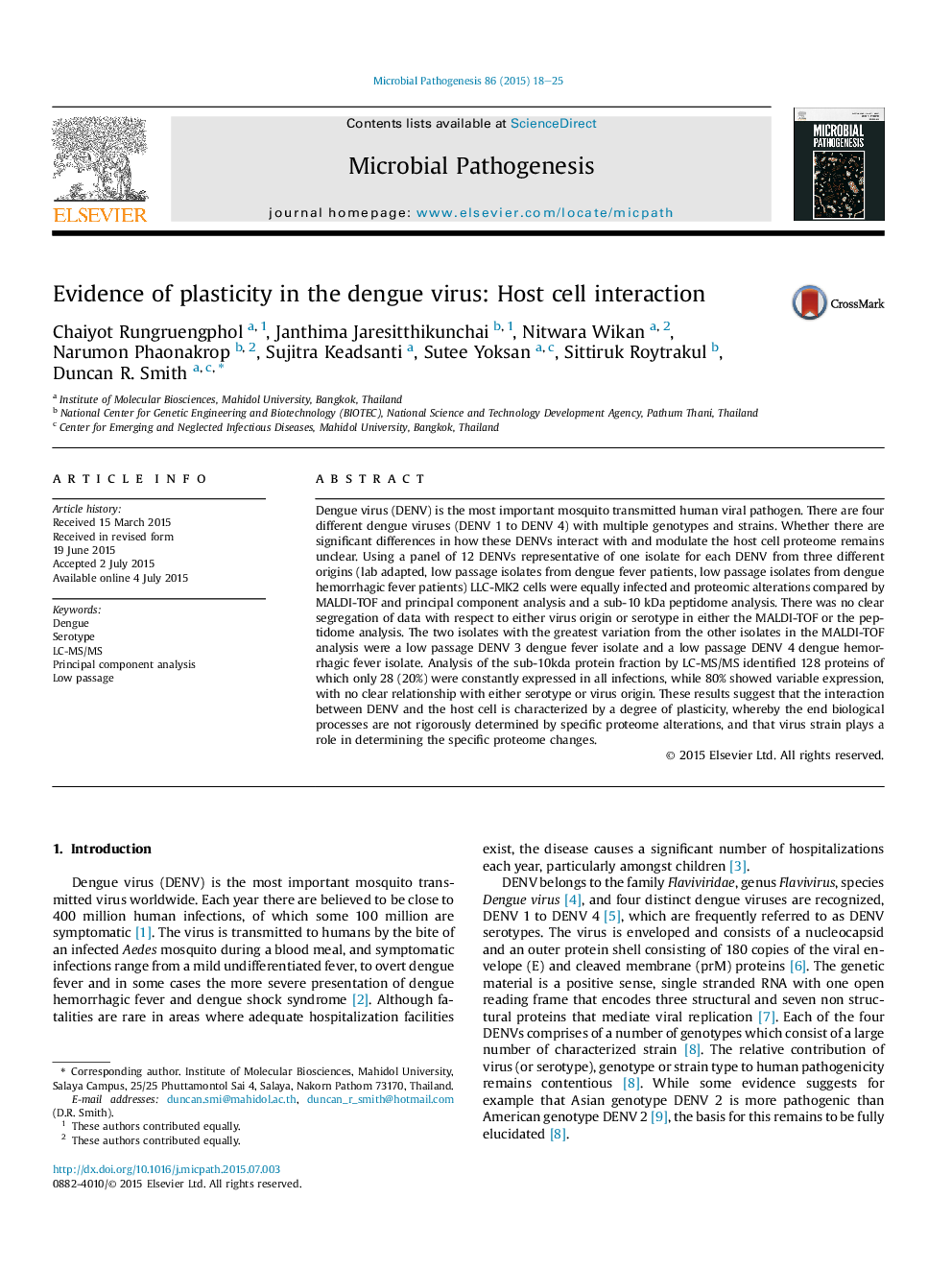| Article ID | Journal | Published Year | Pages | File Type |
|---|---|---|---|---|
| 6136204 | Microbial Pathogenesis | 2015 | 8 Pages |
â¢Proteomic analysis of dengue virus infection showed significant heterogeneity.â¢Heterogeneity was not related to dengue serotype or strain origin.â¢There is a degree of plasticity in how dengue virus interacts with host cells.
Dengue virus (DENV) is the most important mosquito transmitted human viral pathogen. There are four different dengue viruses (DENV 1 to DENV 4) with multiple genotypes and strains. Whether there are significant differences in how these DENVs interact with and modulate the host cell proteome remains unclear. Using a panel of 12 DENVs representative of one isolate for each DENV from three different origins (lab adapted, low passage isolates from dengue fever patients, low passage isolates from dengue hemorrhagic fever patients) LLC-MK2 cells were equally infected and proteomic alterations compared by MALDI-TOF and principal component analysis and a sub-10Â kDa peptidome analysis. There was no clear segregation of data with respect to either virus origin or serotype in either the MALDI-TOF or the peptidome analysis. The two isolates with the greatest variation from the other isolates in the MALDI-TOF analysis were a low passage DENV 3 dengue fever isolate and a low passage DENV 4 dengue hemorrhagic fever isolate. Analysis of the sub-10kda protein fraction by LC-MS/MS identified 128 proteins of which only 28 (20%) were constantly expressed in all infections, while 80% showed variable expression, with no clear relationship with either serotype or virus origin. These results suggest that the interaction between DENV and the host cell is characterized by a degree of plasticity, whereby the end biological processes are not rigorously determined by specific proteome alterations, and that virus strain plays a role in determining the specific proteome changes.
